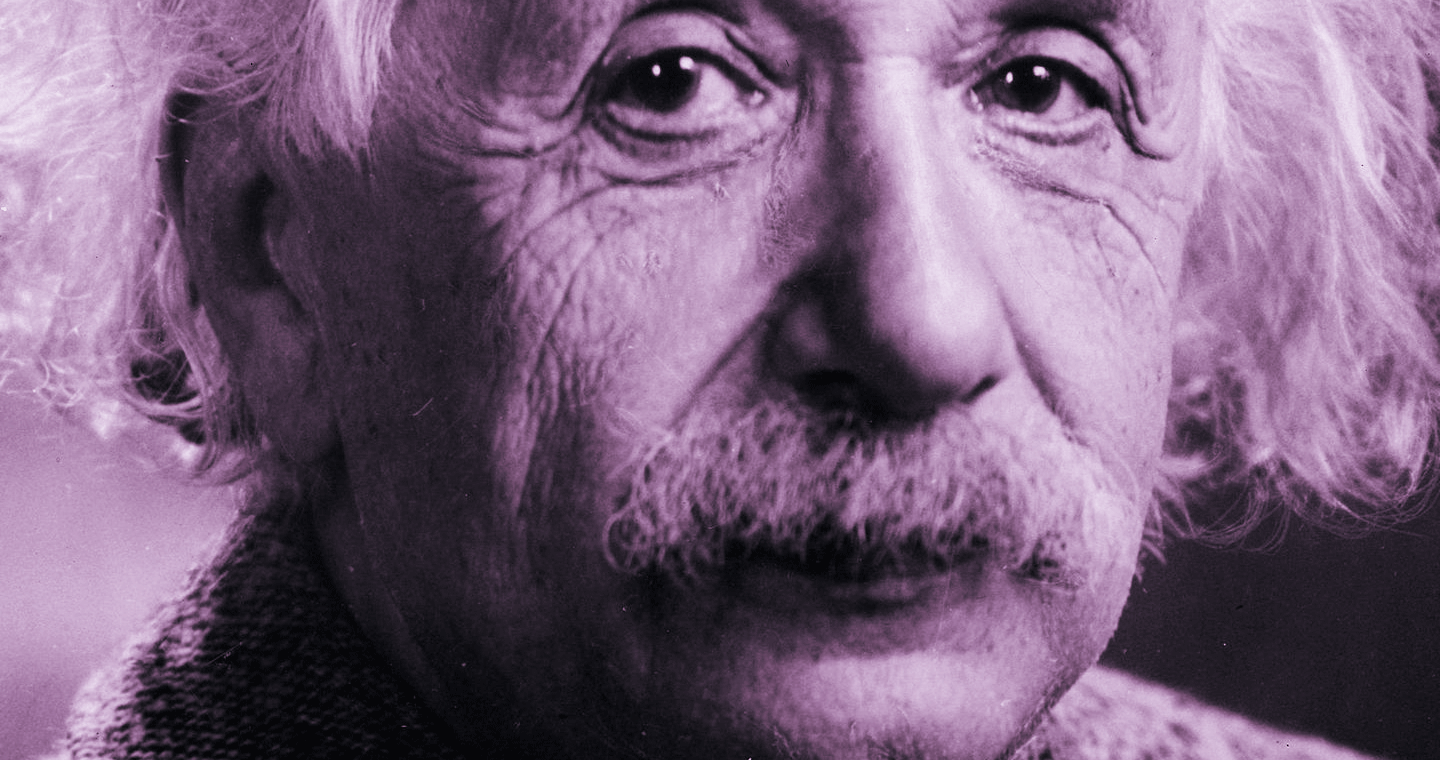Are you a genius… but just don’t know it yet?

Are the brains of people we call ‘geniuses’ somehow different to ours?
Or are we all born with a brain that is hard wired for ‘genius’?
Do a small number of us allow the brain to do what nature built it for, while the rest of us forge chains for evolution’s gift?
Twenty-one years ago, when I wrote the first draft of the book that became Your New Wings, I called the manuscript, Unlock Your Creative Genius. Some people, who read the first draft, objected that the word ‘genius’ should only be applied to people like Einstein.
But is this commonly held belief, that the brains of people like Einstein are somehow different to ours, just another self-limiting story we tell ourselves so we don’t have to examine what may be holding us back from reaching our fullest potential?
In Your New Wings I explain how, here on planet earth, there have been times of explosive creativity in nature and times of mass extinction. There are certain environmental conditions in nature that must be present for creativity to be maximised. When all these conditions are present you have a ‘creative ecosystem’ in which new inventions spontaneously generate themselves.
Evolution built the human brain as natures best possible creative ecosystem – a massive ‘creativity factory’.
I spend eight chapters of the book explaining eight capabilities of the brain – that we all possess – that make the small organ in our skull the epitome of a creative ecosystem.
When I see a newborn baby, I stand in awe that cradled inside that tiny skull is nature’s most sophisticated invention. The fact that this infant, who spends most of their time asleep, will learn a language in a year or two, with absolutely no reference points or formal lessons, can only be described as ‘pure genius’.
But then through education and socialisation, that pure genius is shackled. One of the ways this happens is through the stories we tell and the myths we believe – for example, the belief that Einstein’s brain is obviously qualitatively different to us mortals.
So if my thesis is correct – that the brain of every human is a massive creativity factory – why do some people manage to develop their brain’s internal genius, while others of us chain it up? And is it possible for us to break free of these chains?
I believe there are a number of possible reasons why a small number of people excel at using what nature gifted them while the masses lock it up in the basement of their brain.

Become the hero in your own story
Tap into the ‘creativity factory’ inside your head, transforming the mundane of everyday living into an extraordinary life.
Buy the book1. ENVIRONMENTAL CIRCUMSTANCES
The people whom society calls ‘geniuses’ find themselves at a crossroads in history where their gifts and bents help the entire species take a giant leap forward. They are the lightening rod for a change that is ripe. Dozens of other people may have acted as the conductor. But they were in the right place at the right time – an ‘accident’ of history.
How do ordinary people, like you and me, put ourselves in the best position to be struck by the lightening like these other ‘genisuses’? By refusing to over-plan our lives. By living in the moment – aware that opportunity often comes cloaked in the seemingly trivial events of our lives.
2. CHILD-LIKENESS
It should not surprise us that those we call ‘geniuses’ actually have an over-developed kid in their head. Howard Gardener in Creating Minds, refers to Einstein as ‘the perennial child’. I have argued that our brain is most unfettered when we are a baby and young child. It is through our education and socialisation that we begin to restrict this inherent creativity. Geniuses are those who have resisted these forces. They combine two types of thinking – the naïve thinking of a child with the wisdom of a wise elder.
To unlock your internal genius you have to reconnect with the child part of your brain again. This means at least two things: regaining a sense of play, and regaining your curiosity.
3. COMFORTABLE IN THE MARGINS
The most productive area for nature to invent new things is in the margins – edge territory – the place where ecosystems meet and overlap: for example, tidal mud flats, which are neither sea nor land but both. As adults, most of us find the ambiguity and pain of the margins unbearable. So we move to a black and white world where things are more ‘certain’. The ‘geniuses’ among us find the margins scary, but exhilarating. For them, the chaos inherent in the margins make it a ‘creativity zone’, the space where spontaneous meetings have the potential to spark new life.
Gardner, in his book, explores the biographies of seven people we label geniuses. He finds that one of the common traits they had was the ability to trade on their marginal experiences. And whenever they were tempted to become part of the status quo, they would deliberately put themselves back in a marginal space.
WHAT ROLE DOES BRAIN STRUCTURE OR CHEMISTRY PLAY?
Of course there are many people that will object, ‘Yeah David, but these geniuses are on the spectrum, or suffering some mental illness.’
Now I will grant you that different brains are wired differently and the chemical balances are different. But I would argue that this might help the individual focus better, be more childlike or embrace the margins with greater ease – just as someone born with long lanky legs may have a natural advantage over me in a foot race (because I was born with short legs).
But I still have legs and I can still run.
But if I sit around complaining that people with long legs have a natural advantage, and as a result, I refuse to even stand up, then my legs will wither and die.
The same will happen to the genius you were born with.
WHAT DOES THIS MEAN FOR YOU?
Here are five things you can do to exercise and develop the genius you were born with.
- Start believing in the extraordinary creative powers nature gifted you and stop talking yourself down by comparing yourself to so-called geniuses.
- Put a photo of yourself as a baby on the fridge and label it, ‘Genius!’ After all, this baby created you – the rational adult.
- On a sheet of paper, write out the plans you have for the future. Screw up the paper and put it in the bin. For 24 hours, tune in intensely to everything happening around you and ask, ‘What opportunities lay in what I just observed? What kind of future might that open up?’
- Take yourself (or the kid in your head) to the park for a swing.Imagine you become the hero in your own story. Every hero finds themselves in the margins – caught between opposing worlds (internal or external). What would be the challenges you would face if you moved more into the margins? Imagine yourself overcoming those challenges and triumphing.
I have written a series of three blogs that unmask the three thieves sneaking around your neural pathways stealing your potential. You need to unmask them if you want to tap into the genius that nature has gifted to your brain. The thieves are: THE TRICKSTER, MR PICKPOCKET, and THE BIG CON.
I have created a Creative Solutions Generator – a one page canvass that helps you think outside the box. Holding a ‘But Why’ conversation is step one. For a limited time I am offering a free 5X5 minute mini-course on how to use this simple tool. Learn more here.
Free mini-course!
The Creative Solutions Generator
Amaze yourself as you generate creative solutions, time after time, with this simple tool.
Tell me more!
Become the hero in your own story
Tap into the ‘creativity factory’ inside your head, transforming the mundane of everyday living into an extraordinary life.
Buy the book